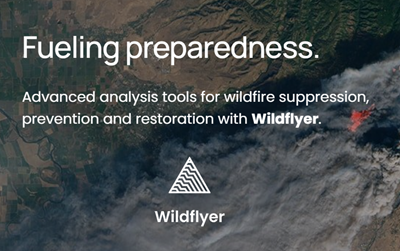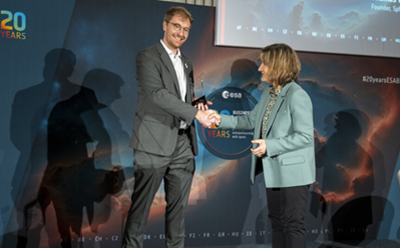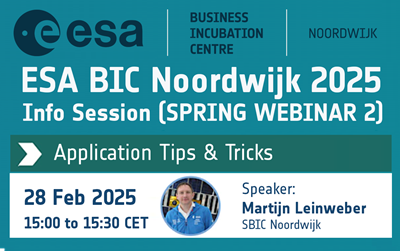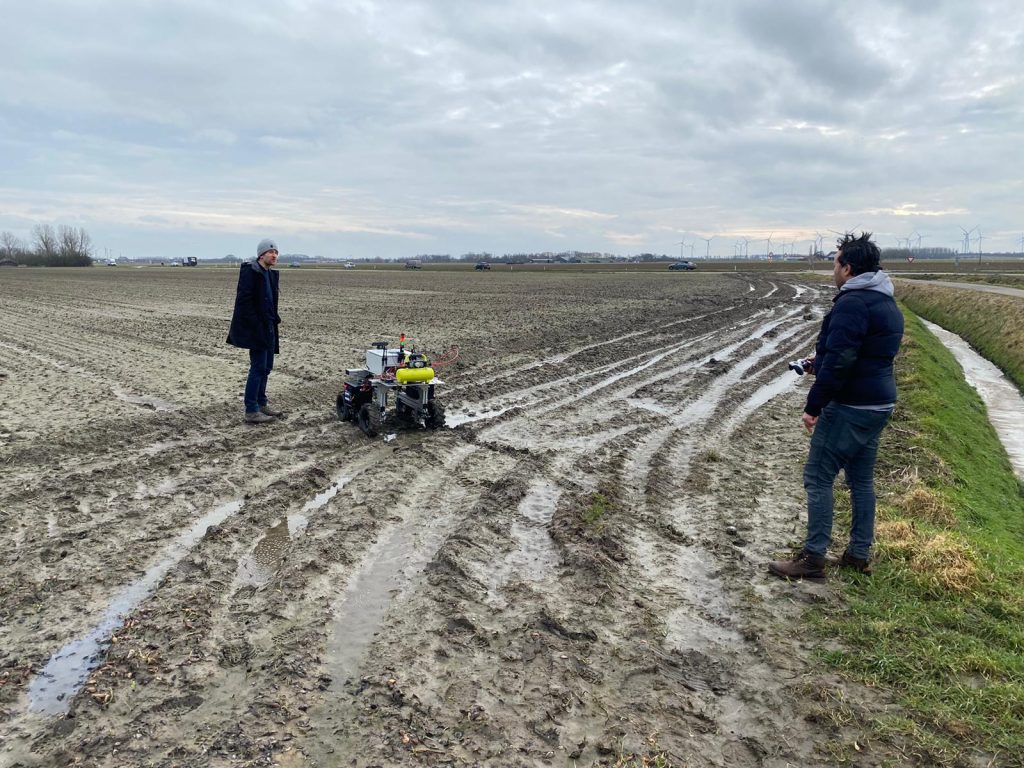
Trabotyx, who started the ESA BIC Noordwijk program December 2020 and is on track to get the first version of its weeding solution for organic farming out in the field. We talked to founders Tim Kreukniet (CEO) and Mohamed Boussama (CTO) about their space based startup, misconceptions about the agriculture sector, and their vision for the future.
Trabotyx automates manual weeding for organic farmers by building a robot platform. The founders talked to more than a hundred farmers to validate their solution. One thing they noticed is that farmers mostly need more hands. While that is expensive, nowadays it’s also increasingly difficult.
The solution: “We built a precision weeding robot, which allows them to reduce costs. It also gives them some much needed peace of mind. So, ideally they don’t have to worry about the quality of their fields, and generally would have less hassle when there are no people working on their land”, says Tim. Mohamed adds: “Eventually, it will be a fully autonomous robot, which is able to weed without human intervention.”
Space technology and inspiration
Trabotyx uses space technologies for accurate localisation of the robot. To be precise, it’s using RTK from GNSS, and the company is exploring the use of Galileo’s High Accuracy Service. It also gets inspiration from space rovers, for instance through algorithms that prevent slipping of the wheels, currently used in rovers on Mars, as well as the upcoming Rosalind Franklin rover by ESA and Roscosmos.
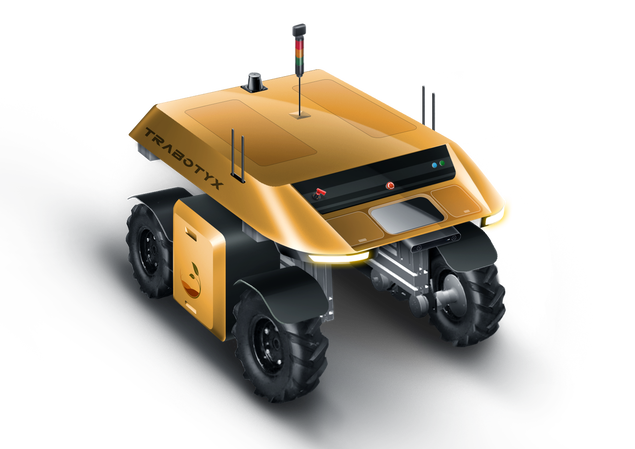
The origins of Trabotyx
The story of Trabotyx starts in Tunesia (trab is Tunesian for soil). Mohamed, part of a farmer’s family, noticed how difficult it was to get people to work on the farm. With his background in aerospace, electrical and software engineering, he couldn’t help but ask his father and uncle: “Why don’t I use my technical skills to help here?” And so it happened he, in his spare time, built a simple robot to help with planting onions in Tunisia.
Fast forward to January 2020. Mohamed joined the Antler accelerator in Amsterdam to find a co-founder to further develop his idea. There he met Tim, who joined without an idea, but with the necessary startup/scaleup experience. Tim had worked in the EV industry in the US, but at some point felt the innovation in that market was done. So, he wanted to dive into a different industry – one that was ripe for innovation, and would have a positive impact on the planet.
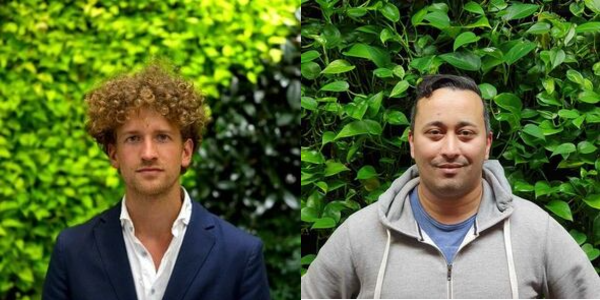
From onions and carrots to precision platform
Trabotyx is now focusing on getting a semi-autonomous robot in the field with 10 customers. Their solution will be made for onion and carrots farmers. “First we thought we needed to make a solution for lettuce farmers. But then we found out that these other crops have the most hectares in the Netherlands, and are most dependent on manual labor. That’s the short-term solution. Our mid-term solution would be to have a solution for all major crops. For the long-term, we want to evolve into a precision farming platform”, Tim says.
Eventually, the startup will not only do some serious weeding, but also harvest a lot of valuable data. “With all that information we can build services based on that data.” Mohamed: “Think of yield estimation, weed density predictions… with data, the possibilities are endless.”

Smart farming hardware and software
It is why Mohamed also elaborates that Trabotyx is mostly a software and big data company. To navigate the robot precisely with GNSS for instance, and to prevent it from slipping, algorithms are being written. That’s why Trabotyx has six other people spread over multiple teams: a mechanical and electrical team for the hardware, and a development team for the software. “When our long-term plan comes to fruition, we will need a cloud infrastructure team as well to host all our agricultural data and Artificial Intelligence oriented services.”
Being a software company as well definitely helps in these trying times, compared to being a fully focused hardware business. “You can’t build a robot without its data DNA. So that’s why we are able to work remotely in these COVID times.” Tim: “We are aware that we are lucky . The pandemic hasn’t been that much of an issue for us so far.”
Bridging the gap between urban and rural thinking
Trabotyx’ goal this year is to have 10 pilots running this year. But it’s not their only scope: Tim and Mohamed are aiming for something more benign as well. “We are hoping we make farmers happy”, Tim says.
That’s why the company makes the case for a more nuanced view of farmers in general as well. “Us urbanites think we know better how farmers should make food. And with that, some prejudices about everything needing to be organic. Turns out, it’s pretty difficult – which made us naive, really. A great part of people living in the city is getting used to having everything on demand. But there’s a huge gap with the reality of growing food. And on top of that, how it’s sold, the logistics, how it’s appearing on shelves of supermarkets… farmers encounter a lot of problems in that entire chain”, Tim explains.
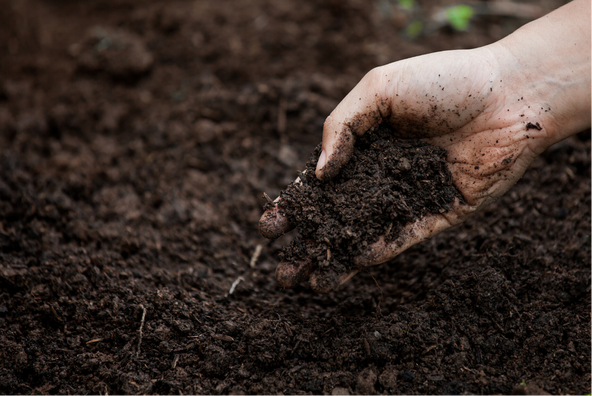
Next to that, the talks with farmers made him realise something else: “Working with farmers is just fun. They are entrepreneurs themselves, and also have some crazy wild ideas. There are a lot of farmers who just want to do good. It has been – and still is – a tremendous learning experience for us.”
ESA BIC Noordwijk program
Speaking of learning: the two founders hope to learn even more in the ESA BIC Noordwijk program. Tim: “What we love is that this incubation program also has technology in its mindset. It gives us access to a network of people that are tech and solution driven first, which is what we need right now.” Mohamed adds: “And of course we hope to learn from ESA’s rover technology. There’s a lot of overlap with what we are doing, so it can help us move forward.”

Drive and dedication
They aren’t afraid of getting dirty too. Mohamed recalls: “I built the robot initially in my appartement and the first time we had to take the robot out in the field, the driving behaviour was not tested yet. I didn’t need to, but I just had to make sure it drives smoothly. The deadline was the next day but it was night already, so I didn’t have the choice but to test it indoors. I cleared out all the furniture to make space and hit go. It left tire tracks all over the floor and I spent 3 days cleaning them out.” If there’s one thing for sure: Trabotyx surely is driven and dedicated to succeed in the smart farming and precision agriculture market.
